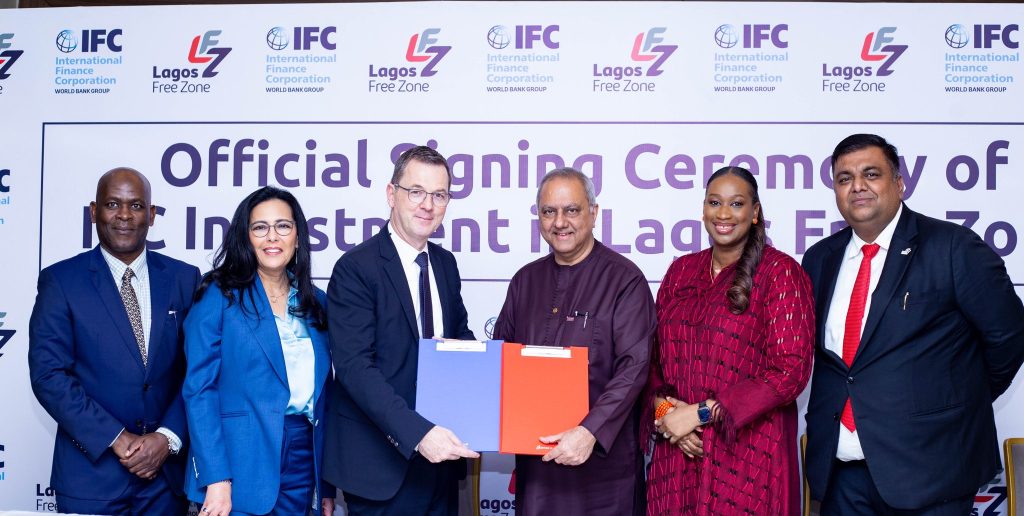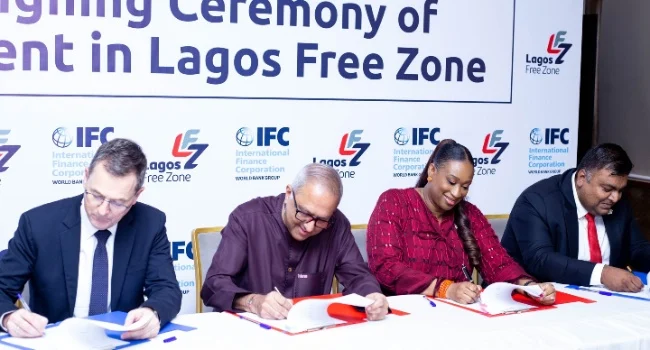The International Finance Corporation (IFC) has committed a $50 million equity investment in the Lagos Free Zone Company (LFZ) to accelerate industrial expansion and economic diversification in Nigeria.
Dahlia Khalifa, IFC’s Regional Director for Central Africa and Anglophone West Africa, announced the investment during a signing ceremony in Lagos, highlighting its role in strengthening infrastructure and attracting global investors to the free zone.
According to Khalifa, the funds will support the development of Nigeria’s first deep-sea port, which is located within the Lagos Free Zone. The investment aims to address infrastructure gaps, enhance logistics, and integrate Nigeria into global value chains, reinforcing the country’s status as a major industrial hub in West Africa.
The 860-hectare Lagos Free Zone, owned by Tolaram, a multinational group with operations across Africa, Asia, and Europe, is designed to provide a fully integrated industrial ecosystem.
Khalifa emphasized that IFC’s support will drive efficient import and export operations, unlocking new economic opportunities for both local and international businesses.

She added that once fully operational, Lagos Free Zone is expected to create approximately 30,000 direct, indirect, and induced jobs, significantly contributing to Nigeria’s Gross Domestic Product (GDP).
The IFC investment also aligns with sustainable development goals, with approximately 15% of the funds dedicated to climate-related initiatives. These include EDGE-certified (Excellence in Design for Greater Efficiencies) buildings, climate-resilient infrastructure, and green energy initiatives to promote sustainable industrialization
Speaking on the investment, Adesuwa Ladoja, Managing Director of Lagos Free Zone Company, described the IFC partnership as a major endorsement of Lagos Free Zone’s vision to become a world-class industrial hub.
She also emphasized how the zone’s integration with the Lekki Deep Sea Port enhances ease of doing business, supporting government efforts to position Nigeria as a regional economic powerhouse.
By addressing infrastructure bottlenecks and boosting connectivity, the investment in Lagos Free Zone is expected to unlock new business opportunities and strengthen Nigeria’s role as a regional economic leader.

